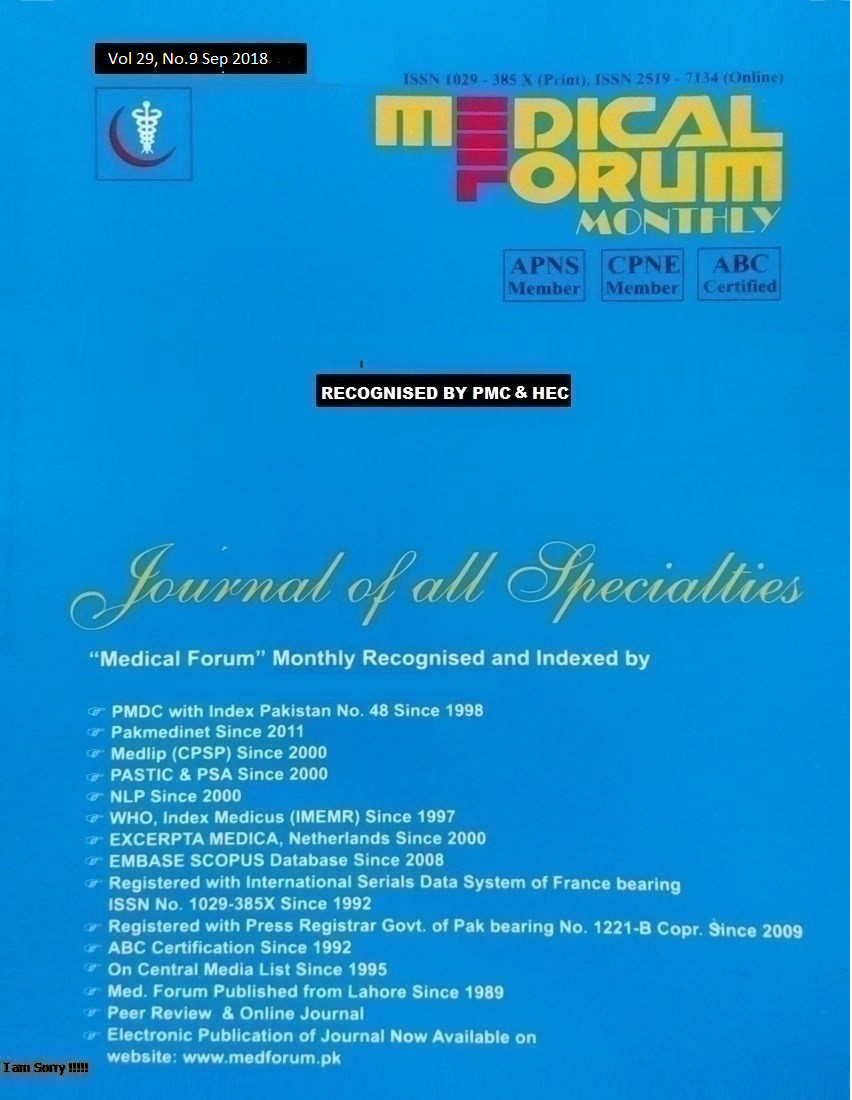
3. Current Trends of Empirical Treatment of Typhoid Fever among General Practitioners in District Kohat, Khyber Pakhtunkhwa, Pakistan
Muhammad Ashraf1, Niamat ullah3, Gulmaizar Khan1 and Sohail Aziz Paracha2
ABSTRACT
Objective: To determine the current trends of empirical treatment of typhoid fever among General Practitioners (GPs) in district Kohat, Khyber Pakhtunkhwa, Pakistan.
Study Design: Prospective questionnaire-based cross sectional study.
Place and Duration of Study: This study was conducted at the hospitals i.e. District Headquarter Hospital, KDA, Kohat and Liaqat Memorial Hospital, Kohat from November 2017 to April 2018.
Materials and Methods: Well-designed and structured questionnaires were distributed amongst 100 general practitioners who gave consent to participate in the study. They were briefed about the study and were requested to fill the questionnaires by responding to the questions in predetermined order. The questionnaires were collected by one of the authors and results were analyzed.
Results: Eighty five percent of the GPs diagnosed typhoid fever clinically, without taking any help from laboratory investigations. Eighty percent of the GPs prescribed empirical antibiotic treatment for typhoid fever and only 3% advised blood culture for diagnosis. The most common antibiotics prescribed by GPs as empirical treatment were flouroquinolones in 30 %, cefixime in 42% and ceftriaxone in 14 % of cases. Seventy five percent of GPs prescribed empirical treatment for 11-14 days duration. Combination of antibiotics was prescribed by 40 % of GPs.
Conclusion: Empirical treatment is commonly prescribed by GPs in the treatment of typhoid fever and Cefixime, flouroquinolones and ceftriaxone are most frequently prescribed antibiotics in our set up.
Key Words: General practitioner, Infectious disease, Empirical treatment, Typhoid fever
Citation of articles: Ashraf M, Niamatullah, Khan G, Paracha SA. Current Trends of Empirical Treatment of Typhoid Fever Among General Practitioners in District Kohat, Khyber Pakhtunkhwa, Pakistan. Med Forum 2018;29(9):10-13.
